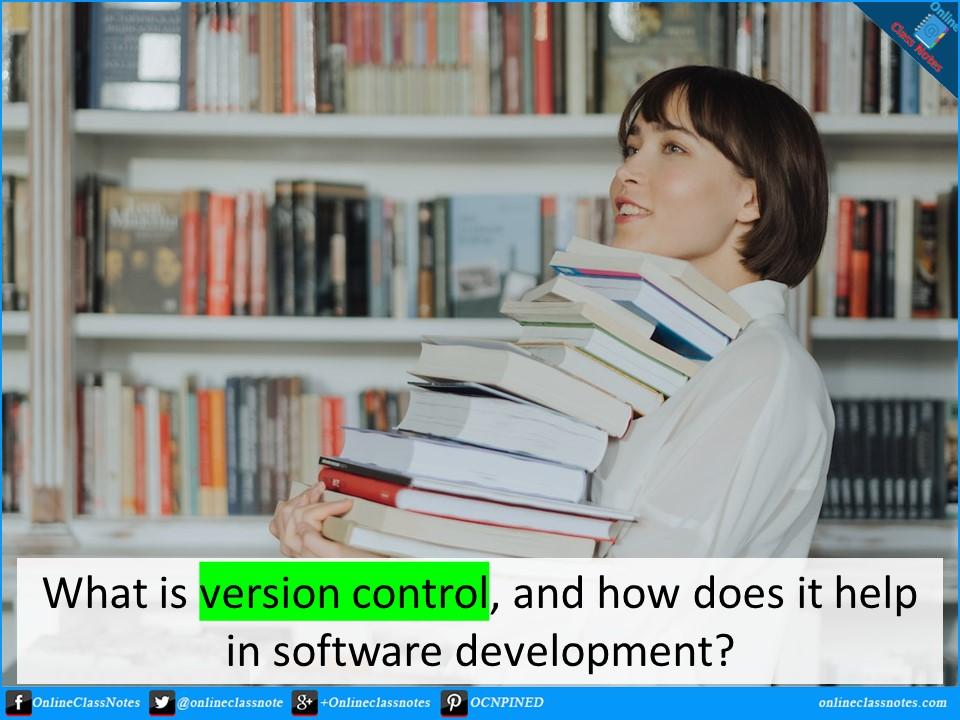Version Control: Empowering Software Development with Collaboration and Control
Introduction:
Version control is a fundamental aspect of modern software development, enabling developers to manage and track changes to their codebase over time. It provides a structured and efficient way to collaborate, organize, and maintain software projects. contributes to the software development process.
Understanding Version Control:
Version control is a system that tracks and manages changes to files, documents, or source code over time. It captures each modification made to a file, allowing developers to view the entire history of changes, revert to previous versions, and collaborate seamlessly with other team members. Version control systems ensure the integrity, traceability, and manageability of project artifacts.
Key Functionality of Version Control:
History and Tracking:
Version control systems maintain a chronological record of changes made to files. Each modification, along with relevant metadata (such as the author, date, and description), is stored in a repository. This historical information provides an audit trail, enabling developers to understand who made a change, why it was made, and when it occurred.
Branching and Merging:
Version control systems allow for the creation of branches, which are independent lines of development. Branches enable parallel workstreams, enabling developers to work on different features or bug fixes without interfering with each other. Merging combines changes from one branch into another, allowing for the integration of new features or bug fixes back into the main codebase.
Collaboration and Concurrent Development:
Version control fosters collaboration among developers by providing a centralized platform for sharing code. It allows multiple team members to work on the same codebase concurrently, automatically merging their changes while resolving conflicts. This promotes efficient teamwork, reduces duplication of work, and enhances productivity.
Rollback and Revert:
Version control systems offer the capability to roll back or revert to previous versions of files or the entire codebase. If a change introduces a bug or an undesirable outcome, developers can easily revert to a previous stable version, undoing the problematic modifications. This functionality provides a safety net, reducing the risk of irreversible mistakes and ensuring code stability.
Benefits of Version Control in Software Development:
Collaboration and Teamwork:
Version control systems facilitate effective collaboration among developers, allowing them to work on the same codebase simultaneously. It provides mechanisms for resolving conflicts and merging changes, promoting seamless teamwork, and reducing coordination overhead.
Code Integrity and Traceability:
With version control, developers can track every modification made to the codebase, ensuring accountability and traceability. The system captures who made the changes, when they were made, and why, providing a clear historical context for each modification. This promotes code integrity, transparency, and accountability within the development process.
Code Reusability and Maintainability:
Version control systems enable the creation of branches and the ability to merge changes, facilitating code reuse and modular development. Developers can experiment with new features or bug fixes in separate branches, ensuring that the main codebase remains stable. This promotes a modular and maintainable codebase, enhancing overall software quality and reducing technical debt.
Risk Mitigation and Recovery:
By maintaining a history of changes, version control mitigates risks associated with code modifications. In the event of a critical issue or unintended consequences, developers can quickly revert to a stable version, minimizing downtime and potential impacts on users. Version control serves as a safety net, enabling efficient recovery from errors or unforeseen circumstances.
Version control is a vital tool in software development, offering numerous benefits that enhance collaboration, code integrity, and project management. By providing a centralized repository, tracking changes, enabling branching and merging, and facilitating collaboration, version control systems empower developers to work efficiently, maintain code quality, and recover from potential setbacks. Embracing version control is essential for modern software development teams, facilitating streamlined workflows, reducing risks, and ensuring the success of software projects.
